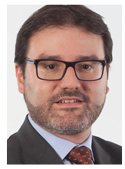Regulation of specialised alternative investment – Caiado Guerreiro & Associados
In 2015, the Portuguese Parliament passed Law no. 18/2015, which reviewed the legal framework of venture capital and established, for the first time, the rules of social entrepreneurship and specialised alternative investment in Portugal, by partially transposing Directives no. 2011/61/EU and 2013/14/EU, and assuring the enforcement of EU Regulations no. 345/2013 and 346/2013 in the Portuguese legal system.
Further to the enactment of Law no. 18/2015, the Portuguese Securities Market Commission (CMVM) has approved the CMVM Regulation no. 3/2015, which aimed at amending the existing regulatory provisions applicable to venture capital investment, as well as regulating the activities of social entrepreneurship and specialised alternative investment.
In this context, it should be noted that ‘venture capital investment’ is legally defined as the acquisition, for a limited period of time, of equity or debt of companies with high development potential, while ‘social entrepreneurship investment’ concerns the same sort of investment but aimed at companies that develop proper solutions for social issues, with the purpose of achieving positive and measureable social impacts.
As for the very recent ‘specialised alternative investment’, it should be construed as the acquisition, for a limited period of time, of assets of any kind, each asset representing no more than 30 per cent of the respective global net value, which means that it is a much less restrictive type of investment.
This type of investment is to be carried out exclusively by specialised alternative investment companies (SIAE) or specialised alternative investment funds (FIAE), and the marketing of such entities is exclusively available to qualified investors. However, this CMVM Regulation allows for non-qualified investors, upon written request to the respective managing entity, to be treated as qualified investors for the purpose of subscription of specialised alternative investment entities, provided that some requirements regarding former investments and market experience are met by the relevant non-qualified investor. It should be mentioned that the CMVM is in charge of the supervision of the marketing of these entities.
This CMVM Regulation also concerns the assets of specialised alternative investment entities, which may be composed of any asset suitable for a collective investment undertaking’s portfolio, with the exception of assets exceeding 20 per cent of said entities global net value, when such assets are issued or guaranteed by persons or entities related to the relevant specialized alternative investment entity (e.g. managing entity, holders of more than 10 per cent of the global net value, members of corporate bodies, among others), in order to prevent conflicts of interest.
In addition, the assets of specialised alternative investment entities shall be subject to annual valuation, while venture capital entities shall valuate their assets biannually (without prejudice to lower periodicity specifically determined by internal or management rules). In any case, such valuation should be performed under the fair value method.
Furthermore, at least 5 per cent of the capital of these entities must be paid at the moment of subscription, and it must be completely paid until the end of the first year of activity. As from this moment, the global net value of these entities shall correspond at least to €1,250,000.00. If the global net value is less than two thirds of this amount, the management entity shall convene the meeting of participants to resolve on the dissolution of the specialised alternative investment.
Moreover, this CMVM Regulation addresses important topics, such as the legal procedures for the merger and division of the above mentioned investment entities.
In sum, the specialised alternative investment allows for a less restrictive type of investment through companies or funds, which are able to diversify their activity into any assets and must not be focused only on equity or debt of companies. In fact, this may present an opportunity for companies to offer attractive assets with a lower risk for the investors in comparison with equity or debt and hopefully a much-needed recapitalisation of companies in Portugal.
Rafael Teles is an attorney at law at Caiado Guerreiro & Associados. He can be contacted at rteles@caiadoguerreiro.com












